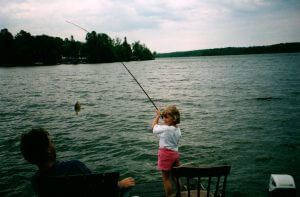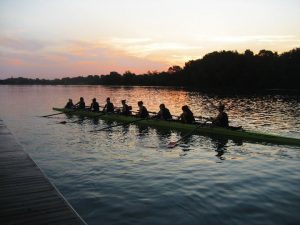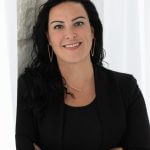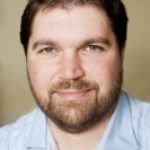Carly Schmidt
Originally from Ontario, Canada, Carly Schmidt (she/her) now lives and works in Colorado, on Arapaho, Ute, and Cheyenne lands.
Carly Schmidt is River Network’s Membership & Communications Director. She has been connecting passionate advocates to a national water movement at River Network since 2018. In her role, she manages River Network’s membership program, manages planning of the national River Rally conference, co-hosts the “At the Water Table” podcast, and spurs network learning through relationships, news, and stories. Prior to River Network, Carly created content for Project WILD (a project of the Association of Fish & Wildlife Agencies), managed operations and communications at Austin Wildlife Rescue, and managed a STEM education program. She holds a Bachelor of Arts in Political Science from the University of Tulsa, where she captained the women’s rowing team, and a Master of Science in Environmental Sciences & Policy from Northern Arizona University.

Fishing in Muskoka.
Which River Network value most speaks to you?
Respect. A critical objective of the last few years has been decentralizing leadership and soliciting feedback from partners and staff wherever possible. To me, this has been an important reminder that this movement is made up of individuals with unique experiences and talents who care deeply about the work. I have learned so much from this team and our partners by taking more time to share openly and collaborate!

Rowing on Martindale Pond in St. Catharines.
What called you to work in water?
I grew up rowing and sailing on Lake Ontario, so this vocation was sparked by the joy of being in or on the water. I had the privilege of competing, practicing, and playing on so many bodies of water in varying states of health. As I took more of an interest in freshwater protection, I learned that appreciating the experiences afforded by our freshwater sources is not enough. I am continuously learning and being inspired by the people and communities working tirelessly to protect water for people and nature.
Why is equity, diversity, and inclusion (EDI) important in your work?
Like many of us, I need to know that the work I am doing has a real and meaningful impact. There are so many challenges to clean, safe, and affordable water, and so many are related to environmental injustice. Ultimately, a movement that has real impact has to include those who are directly affected by every challenge. Including a broad range of voices, experiences, and worldviews in this movement is essential to our collective impact.







